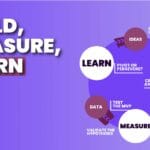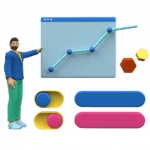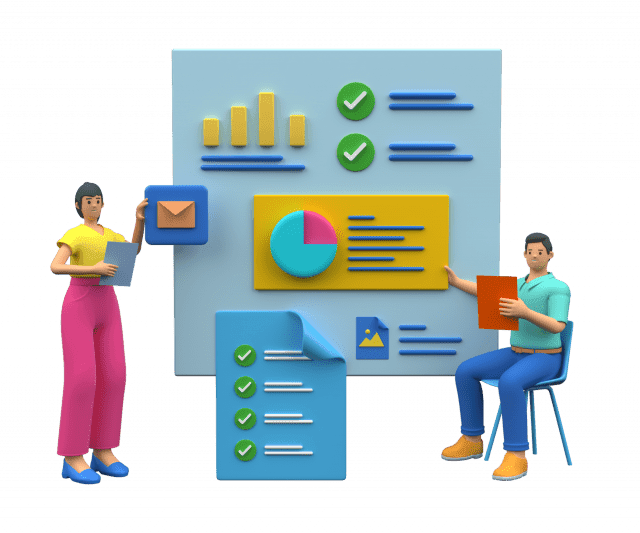
Artificial intelligence, or AI, is the ability of computers or computer-based robots to perform tasks that are usually done by humans. It is one of the biggest technological innovations to date, and it has helped businesses open up channels for communicating with and reaching out to their potential customers.
An infographic (below) from Oracle explores some of the major ways AI is enabling marketing teams to boost their performance.
Specifically, it looks at three reasons marketing leaders are turning to AI: improving segmentation and personalization; lowering costs, reducing errors, and boosting productivity; and filling the sales pipeline.
The infographic looks at how AI powers each of these benefits and provides data points backing each up.
Check out the infographic:
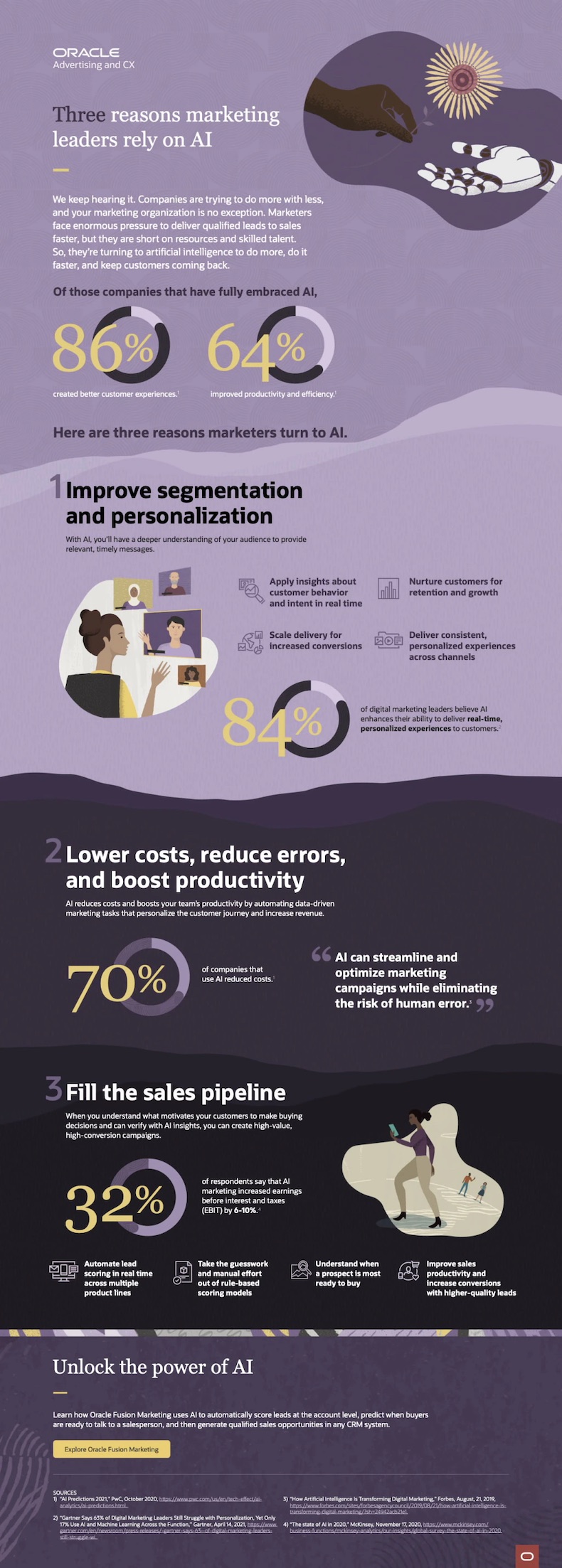
The global AI market is expected to grow from $58.3 billion in 2021 to $309.6 billion by 2026 for a compound annual growth rate of 39.7%, according to MarketsandMarkets.
Here are six ways AI can be used by B2B marketers to provide excellent service and grow their business.
Table of Contents
Toggle1. Combining Online and Offline Client Data
Customers can buy products and services offline as well as online, and no matter which they prefer… every client’s purchasing behavior is valuable to a business.
AI helps combine all customer data—online or offline—and creates a 360-degree view of each client. It helps you to understand customers better and more effectively communicate with them.
Examples of AI-based customer data platforms (CDPs) that can be used by B2B businesses are Bloomreach, Tealium, and Segment.
Bloomreach, for instance, helps you enhance customer experience by allowing you to capture, store, and manage your client data and provide the required insights to better understand customer behavior and improve your marketing strategy accordingly.
2. Customer Segmentation
Customer segmentation refers to subdividing your customers into various groups according to their needs or other characteristics. However, manual segmentation can be a huge task.
AI can help you with accurate and more targeted segmentation of customers and channels per demographic, location, prior buying behavior, and buying persona, which can help you send customized marketing content to a particular group of customers.
AI-based customer segmentation tools such as Baremetrics and Optimove have built-in customer segmentation dashboards that help you personalize and study every aspect of your client segment and easily keep track of your clients’ activities.
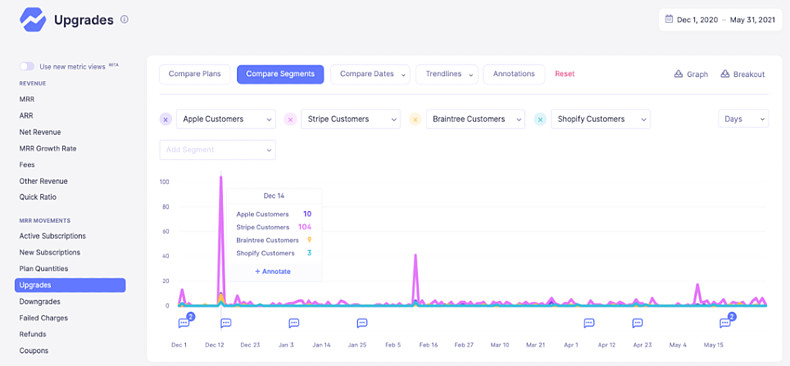
3. Identifying Convertible and Nonconvertible Leads
In B2B sales, it is often difficult to differentiate between new and recurring customers, and between convertible and nonconvertible leads.
AI-based lead management tools such as monday.com can help you with lead capturing, lead management, lead database integration, lead nurturing, etc. Such tools allow you to identify the objective of a lead and learn which can be converted easily and which cannot by analyzing those leads’ past buying patterns, social media activities, trends followed, online searches, and more.
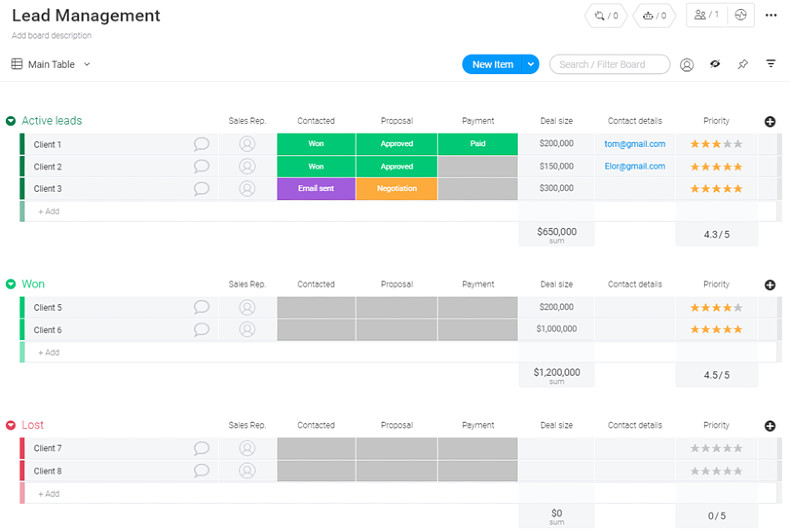
4. Social Media Insights
There will be nearly 4 billion social media users worldwide in 2022. Because social media reaches such a large audience, it can contribute immensely to business growth.
However, since social media is so popular a marketing platform, competition is fierce. It is important to analyze the market, keep up with trends, plan your posts, draft content according to your audience’s preferences, monitor your competitor’s strategies, and manage social media ads.
But what if all that could be done by software?
Many AI-based technologies can be used to gather and analyze data and use it to improve your social media marketing strategy. Sprout Social, Smartly.io, and SocialBakers are just a few of the AI-based social media management platforms that you can use to optimize your social media marketing.
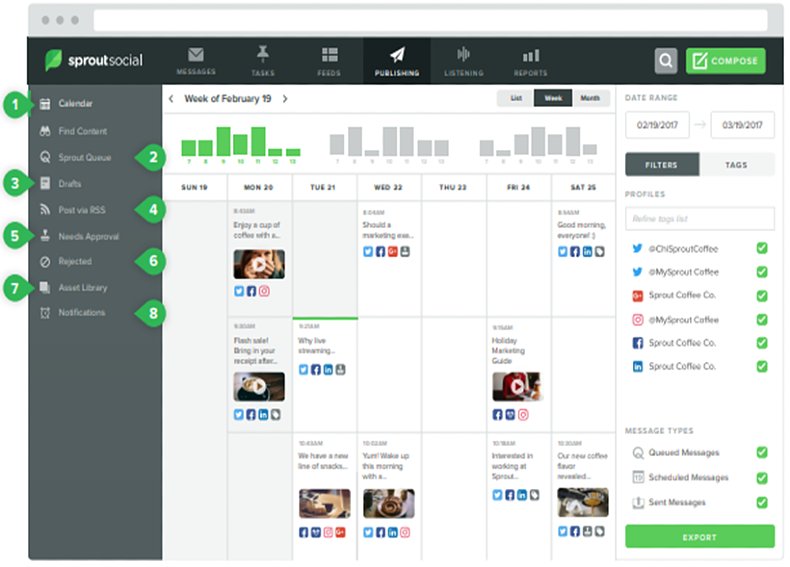
5. Customizing Content
Businesses all over use many forms of written content such as blogs, case studies, testimonials, website pages, and social posts to reach their target audiences.
However, it is difficult to customize content for clients without investing a huge sum of money into research, surveys, campaigns, etc. And for B2B businesses, the issue is more prevalent.
Many AI-based tools can help you plan and generate customized content for your customers based on their needs, preferences, behavior, demographics, etc. so you can save time and focus on building relationships and converting leads. Wordsmith, Articoolo, and Quillbot are AI-based tools for content generation. Such tools can be used to write texts and slogans for email or PPC campaigns, headings, and titles for your blogs or articles, product descriptions, and calls to action. They can also check your content structure, grammar, etc.
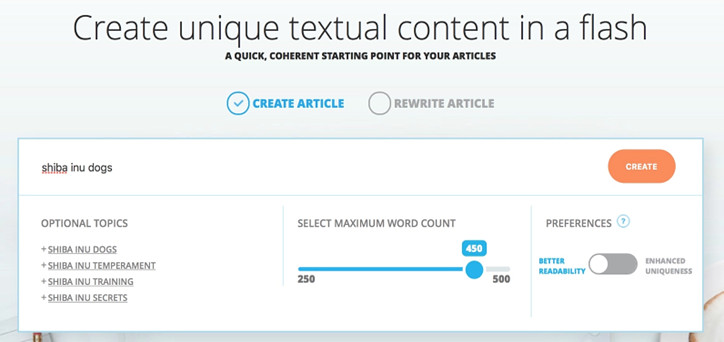
6. Efficient Email Marketing
AI-based tools can help B2B businesses improve their email marketing. They can help you optimize subject lines, write automated and customized content that uses keywords required to be noticed by the target audience, segment your customers by their requirements, determine what time an email needs to be sent, retarget clients, and more. They can also help you determine which email strategy has worked for you and which was simply a waste of time.
Phrasee, Zetaglobal, and Seventh Sense are examples of AI-based email marketing tools that optimize content for subject lines, email body, calls to action, etc. so you can get more clickthroughs and ultimately more leads and conversions.
* * *
The advancement of AI technology has given B2B businesses a chance to provide their clients with customized services across multiple channels of communication.
AI-driven tools can help businesses collect customer data, track customer activities, provide insights and analytics, upgrade their services, increase customer satisfaction, and improve ROI.
